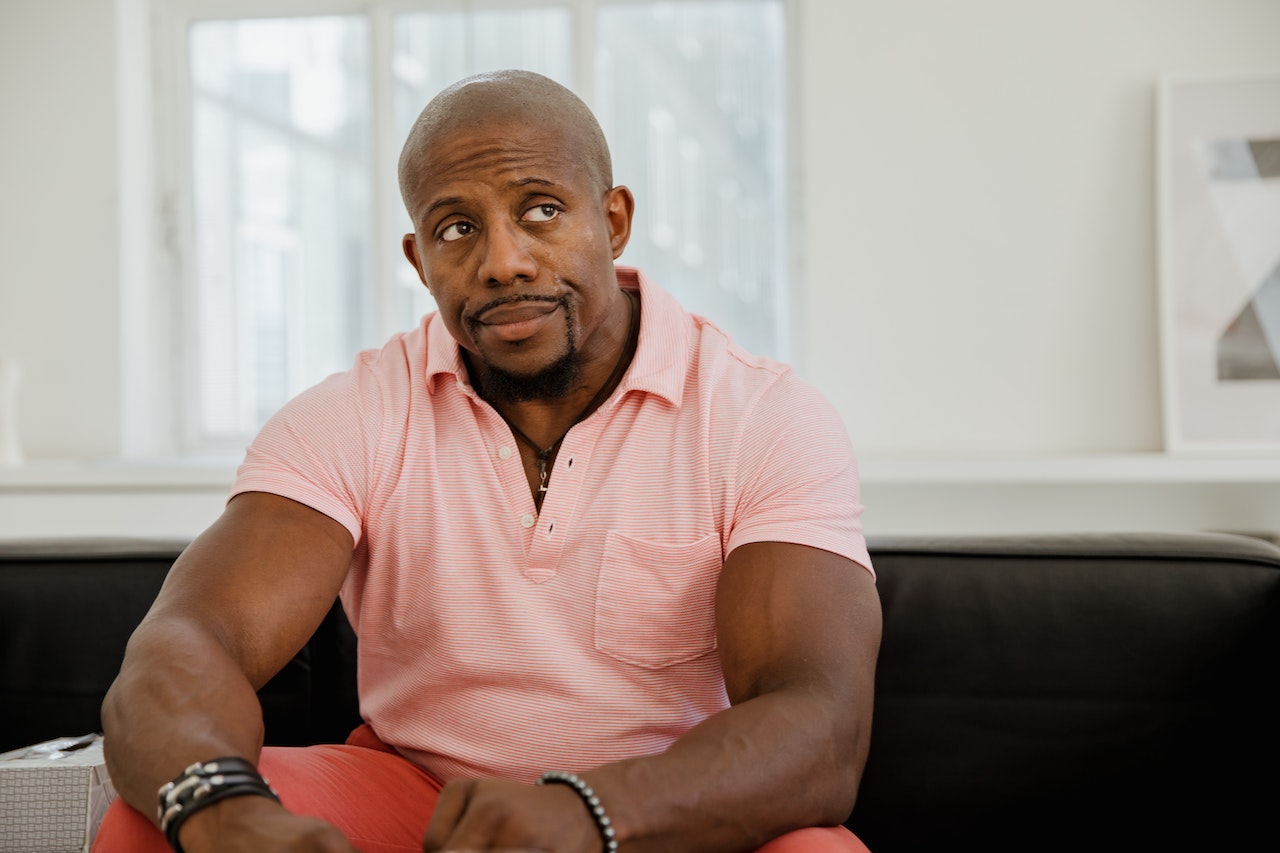Men may have a harder time than women seeking help for issues related to their mental, social, or emotional well-being. Particularly applicable to anxious and depressed states of mind. Cultural and social pressures on men to be seen as strong, independent, and in charge may make it difficult for them to recognize and seek help for anxiety. Mental health problems such as depression and anxiety affect people of both sexes equally. The warning signs and effective treatments will be discussed.
Symptoms of Anxiety in Men
Anxiety is more than just feeling nervous or having sweaty palms. It can have a significant impact on daily life, relationships, and overall well-being. Men may experience physical and emotional symptoms of anxiety that can interfere with their ability to function effectively. Some common physical signs of anxiety include a pounding or racing heart, excessive sweating, muscle tension, restlessness or agitation, dizziness, shortness of breath, and insomnia. Emotional signs may include constant worry, feelings of dread, difficulty concentrating, avoidance, catastrophic thinking, irritability, hypervigilance, absentmindedness, and fear of losing control. It’s important to recognize these symptoms and seek help when needed.
Symptoms of Depression in Men
The symptoms of depression can look very different in men compared to women. Although it is commonly associated with feelings of melancholy and hopelessness, some of the other symptoms that men may display include irritability, anger, unnecessary risk-taking behavior, increased alcohol or drug use, and a loss of interest or pleasure in activities that they once found enjoyable. Low levels of energy, altered appetite, trouble sleeping, loss of sex drive, and increased use of alcohol or drugs can all be physical signs of depression. Emotionally, men may experience feelings of sadness or nervousness, experience irritability or anger, become withdrawn and isolated, experience feelings of worthlessness or hopelessness, take unnecessary risks, and have thoughts of death or suicide. The ability to recognize these symptoms is absolutely necessary for early intervention and support.
Related Link: Psychological Distress Increased With Night, Rotating Shift Work
Treatment for Anxiety and Depression in Men
Anxiety and depression are manageable, but only if you get help for them. A visit to the doctor for some initial advice and information is recommended. They might suggest seeing a psychiatrist or psychologist instead. Whatever your diagnosis—anxiety, depression, or both—these experts can help you create a plan of action that works for you.
Anxiety and depression treatment options range from alterations to one’s way of life to talk therapy to pharmaceuticals. Changing one’s lifestyle, including eating well, exercising frequently, sleeping enough, and cutting back on drugs and alcohol, can help reduce symptoms. Anxiety and depression can be effectively treated through psychological methods, especially cognitive-behavioral therapy for mild to moderate cases. Antidepressants and other medication may be prescribed alongside therapy in some cases. Coordinating your care with medical experts is crucial as you seek the best course of action.
The Making of a Strategy
Planned action for anxiety and depression may involve more than one method. Strategies to improve sleep quality, reduce stress, and increase physical activity are all examples of what this category encompasses. A psychologist or counselor can help you change your negative thought processes and learn to negotiate tough situations in your relationships. Anxiety and depression are not signs of weakness; reaching out for help demonstrates resilience.
Tips for Coping with Anxiety and Depression
Taking steps to care for your mental health is crucial. Here are some tips for managing anxiety and depression:
- Stay active: Engage in activities or hobbies you enjoy, even if you don’t feel motivated at first. Persistence can lead to the return of enjoyment.
- Take care of your body: Maintain physical activity, eat a healthy diet, and prioritize getting sufficient sleep. Avoid using alcohol or drugs as a means to cope, as they can exacerbate symptoms.
- Seek professional help: Reach out to a trusted doctor or health professional who can provide appropriate treatment and support.
Supporting Someone with Anxiety or Depression
If you have a loved one or friend experiencing anxiety or depression, you can play a vital role in their support system. Here are some helpful actions to consider:
- Show awareness and understanding: Communicate that you’ve taken note of their recent behavior and are willing to listen without passing judgment.
- Encourage seeking professional help: Suggest they consult a doctor or mental health professional and offer to accompany them to appointments if needed.
- Promote healthy habits: Encourage them to maintain regular sleep patterns, exercise, and eat well.
- Stay connected: Reach out and keep in touch, but respect their boundaries if they decline invitations or participation in activities.
- Be vigilant: If you believe they are at risk of self-harm or harm to others, contact a doctor or hospital immediately.
Want to stay updated on ways to improve patient outcomes in your community? Subscribe to our newsletter.
Recognizing Anxiety Symptoms in Men
Men are not immune to experiencing the negative effects of anxiety and depression. Early intervention and support are significantly more effective when recognizing signs and symptoms. It’s important for men to know that asking for assistance does not reflect weakness. Changes in diet and exercise, counseling, and medication are all effective ways to alleviate symptoms and boost health. If you or someone you know is experiencing anxiety or depression, seeking help from qualified medical professionals and offering emotional support is important. Let’s work together to make the world a more positive place for everyone’s mental health.
Related Link: Health How Stress and Emotions Can Affect Your Eczema











